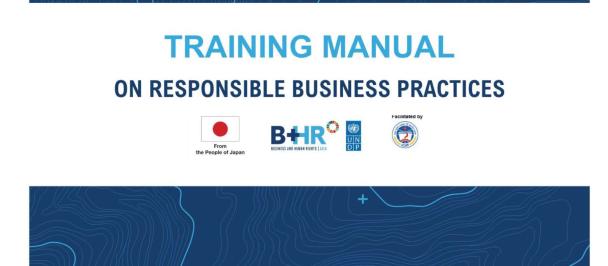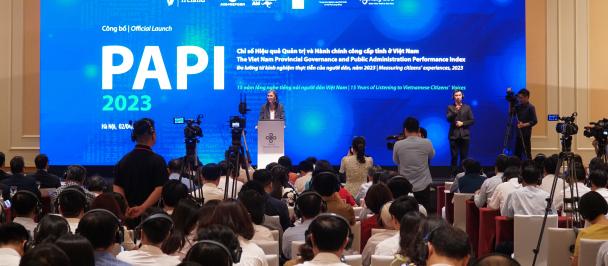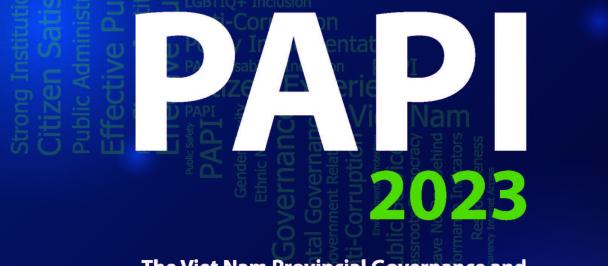ASEAN Law Forum 2022: International experience in providing mutual legal assistance in civil and commercial matters under the framework of the Hague Conference on private international law
November 17, 2022
Welcome Remarks by Ms. Ramla Khalidi, UNDP Resident Representative in Viet Nam
- Excellency, Mr. Nguyễn Khánh Ngọc, Deputy Minister of Justice of Viet Nam
- Excellency, Mr. Giorgio Aliberti, Ambassador of the European Union in Vietnam
- Dr. Christophe Bernasconi, Secretary General of the Hague Conference on Private International Law
- Representatives of ASEAN Secretariat, EU member states and ASEAN countries,
Ladies and gentlemen,
Good morning, Xin Chao!
On behalf of UNDP Viet Nam, it is my great pleasure to welcome you all to this ASEAN Law Forum.
We live in an increasingly globalized world, where mobility means that most people no longer live and die in the same village. More and more Vietnamese and ASEAN citizens travel the world, they live and work abroad. Maybe they get married to foreigners, or they have children born abroad. Perhaps they buy property, or change their civil status in another country. Similarly, many Vietnamese and ASEAN businesses engage in trade, investment, and other activities that reach beyond national borders.
All these events are recorded in legal documents issued by the countries where the events took place, or can be proven by other evidence found in that country. But when disputes take place or cross-border legal matters arise, this can create a web of complications. And if these situations are not resolved, the protection of the legitimate rights and interests of those involved may be put at risk, often with a disproportionate impact on the lives of women, children and the most vulnerable.
As an active member of the Hague Conference on Private International Law (HCCH) and two of the Hague Conventions, Viet Nam has seen the benefits of a common international framework on mutual legal assistance. Instead of signing bilateral agreements, joining Hague Conventions helps establish common guidelines applicable to all mutual legal assistance activities among member states. It is my hope that Vietnam and other countries will share their experience with fellow ASEAN Members as part of this Law Forum, providing their unique and valuable insights in this area.
I especially look forward to discussions on how a common mutual legal assistance framework could increase the accuracy and efficiency in foreign-related civil and commercial cases, within ASEAN and beyond.
In the last 3 years, and under the EU Justice and Legal Empowerment Programme which supports the strengthening of the rule of law through a more reliable, trusted and accessible justice system for all, UNDP Viet Nam accompanied the Ministry of Justice in the legislative reform process in the area of mutual legal assistance. A series of studies have shed light on gaps and opportunities to improve legal assistance, such as an empirical study on the implementation of the Law on mutual legal assistance in civil matters with a view to ensuring the rights of women and children (in 2020); Research on international experiences in mutual legal assistance in civil matters (in 2021) and A field survey on mutual legal assistance activities, analyzing the challenges of the first two reports at the local level (in 2022). I’d like to highlight two key findings from these studies:
First, women and children are among the most vulnerable groups. Sixty to eighty percent of requests for mutual legal assistance sent or received by Viet Nam are related to marriage or family matters. In cases concerning divorce and custody rights, women and children face difficulties as they wait for the relevant authorities to process their requests. In some cases, children have been denied health care benefits because they could not obtain birth certificates. These findings, which may be common to other ASEAN countries, highlight the importance of effective mutual legal assistance mechanisms, to ensure the full and timely protection of legitimate rights and interests.
Second, technology plays a very important role in improving the efficiency of handling mutual legal assistance requests. The Covid-19 pandemic has demonstrated how innovation and information technology can help governments continue to serve their citizens during difficult times, efficiently and with greater transparency.
The need to innovate and digitize mutual legal assistance services is even more pressing for commercial disputes in this ever-growing globalized era of trade and e-commerce. Opportune provision of legal evidence by the authority of one country to the court of another country would ensure timely justice for disputing parties in cross-border commercial disputes. Viet Nam and the ASEAN region should take the opportunity to accelerate their transition to a digital age that is citizen centric and inclusive.
As ASEAN members become more deeply integrated into the international community, improved performance on mutual legal assistance in civil and commercial matters will greatly benefit ASEAN citizens. An effective law that meets international standards of the Hague Conventions and strong legal implementation are key to strengthen cooperation with other countries in mutual legal assistance. This in turn helps protect the rights and interests of ASEAN citizens and businesses, wherever they are, especially the most vulnerable groups.
Our Forum today is not only the continued collaboration between UNDP and the Ministry of Justice, but also an excellent opportunity for strengthening the coordination between the ASEAN countries, and with other countries in legal mutual assistance.
In closing, allow me to offer a very special thanks to our implementing partner – the Ministry of Justice and to thank the EU Delegation in Viet Nam for their generous support to this important Programme. UNDP is committed to support the Ministry of Justice throughout this important process, contributing to uphold the rule of law and ensure justice for all.
Thank you! Xin Cam On!

 Locations
Locations



